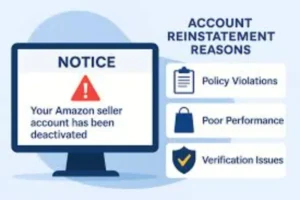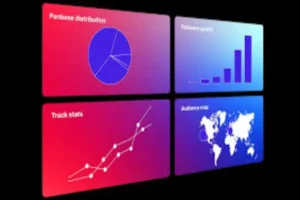How Companies Are Future-Proofing Their Business Models

Future-proofing isn’t theory, it’s strategy. As markets shift and tech advances, companies are redesigning how they work to stay relevant. That means adapting fast, expanding missions, and using smarter tools to compete in real time.
Manufacturers are automating supply chains. Retailers are building hybrid shopping models. Even gambling operators are evolving, expanding live game portfolios to meet changing demand. Many now offer top live baccarat games with real dealers, including No Commission Baccarat and Live Baccarat Control Squeeze, to stay current and retain players.
The playbook is clear: adapt your systems, upgrade your teams, and build a business that doesn’t break under change. Here’s how the smartest brands are doing it.
Smarter Operations Through Automation and Integration
Automation is no longer a luxury, it’s the baseline. Businesses still relying on manual data entry, paper-based invoicing, or unstructured processes are falling behind fast. Automating repetitive tasks doesn’t just save time; it reduces human error, accelerates decision-making, and allows employees to focus on high-impact work.
Smart businesses are going even further by integrating their systems. Instead of juggling multiple disconnected platforms, they’re building unified ecosystems where data flows seamlessly. That means expense tools syncing with accounting software, CRM systems feeding into marketing dashboards, and payroll platforms automatically updating HR databases.
When everything connects, operations become leaner and more intelligent. Real-time visibility replaces outdated reporting. Time spent reconciling data turns into time spent improving strategy. Integration transforms chaos into clarity, and in volatile times, clarity is power.
People-Centered Growth: Retention, Development, and Vision
Your business is only as resilient as the people driving it. In a tight labor market, retaining top talent has become a strategic advantage, and businesses that fail to invest in their people are seeing the cost through high churn, low morale, and a constant skills gap.
Retention starts with culture. Companies are building environments where employees feel supported, heard, and invested in. That means offering clear growth paths, mentorship, mental health resources, and flexibility that fits real life. It’s not about flashy perks, it’s about long-term commitment both ways.
Beyond retention, the smartest teams are hiring for potential, not just credentials. They’re looking for adaptable, forward-thinking talent, people who see around corners and challenge the status quo. Combined with ongoing development programs, this creates teams that aren’t just reacting to change but driving it from within.
Building Financial Resilience from the Ground Up
Economic uncertainty isn’t going anywhere, and businesses that treat financial planning as a reactive process will always be one step behind. Future-ready companies are taking control with proactive, data-driven financial management that goes far beyond budgeting.
They’re running multiple cash flow scenarios, mapping different revenue trajectories, and preparing buffers to handle the unexpected. Expense management tools are giving leadership insight into spend patterns in real time, not weeks after the fact. Investment decisions are being made with better forecasting, not guesswork.
Financial resilience doesn’t mean hoarding cash or avoiding risk. It means knowing when to scale, when to pivot, and when to hold steady,all based on a clear understanding of where the business stands. In volatile markets, control over your finances isn’t just smart, it’s survival.
Innovation Without Losing Your Identity
Adaptability is essential, but so is consistency. Businesses that rush to adopt every new trend often end up losing what made them unique in the first place. In contrast, future-proof brands are innovating with intention, growing in new directions while staying rooted in their identity.
Whether launching new products, entering unfamiliar markets, or redesigning customer experiences, these companies use their brand values as a compass. Change is constant, but purpose doesn’t shift. That gives customers something to trust, even when everything else is in flux.
The most successful brands don’t sacrifice clarity for complexity. They evolve in ways that make sense, keeping their core message intact while experimenting with new formats, technologies, and offerings. That kind of balance creates long-term loyalty and lasting relevance.
Data-Led Decisions and Meaningful Collaboration
Intuition has its place, but it can’t replace insight. Businesses that rely on data to inform decisions are making faster, smarter, more confident moves. Whether it’s customer behavior, sales cycles, or market trends, data-driven strategies create alignment across departments and help teams prioritize with precision.
Even better, they reveal opportunities before competitors see them. For instance, analyzing expense trends might surface inefficiencies no one noticed. Studying customer feedback can spark product improvements that drive retention. And tracking engagement metrics helps marketing teams adjust messaging in real time.
At the same time, smart businesses are breaking out of their silos. They’re forging partnerships with complementary brands, industry innovators, and even former competitors to reach new audiences and share resources. These collaborations open doors that internal strategies often can’t, creating momentum that lasts beyond a single campaign.





